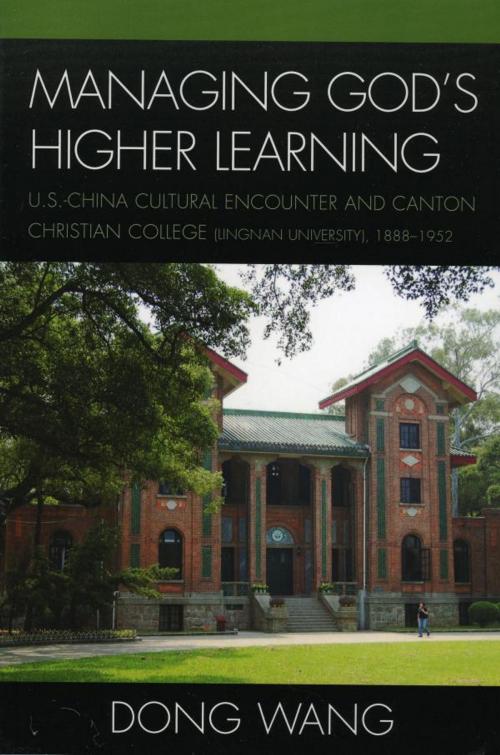Managing God's Higher Learning
U.S.-China Cultural Encounter and Canton Christian College (Lingnan University), 1888-1952
Nonfiction, Reference & Language, Education & Teaching, Educational Theory, Multicultural Education, History, Asian, Asia, China| Author: | Dong Wang | ISBN: | 9780739157473 |
| Publisher: | Lexington Books | Publication: | June 15, 2007 |
| Imprint: | Lexington Books | Language: | English |
| Author: | Dong Wang |
| ISBN: | 9780739157473 |
| Publisher: | Lexington Books |
| Publication: | June 15, 2007 |
| Imprint: | Lexington Books |
| Language: | English |
Managing GodOs Higher Learning offers a distinct empirical study of Lingnan University and addresses issues of adaptation and integration. Author, Dong Wang, demonstrates that many aspects of Lingnan _ governance, links with the local society, financial management, education for women _ have either never been made the subject of scholarly discussion or are different from what we think we know about U.S.-China relations in the past. As the first co-educational institution of higher learning in China, Lingnan made monumental strides in the management of programs for women, a fact which confounds the assumptions made by China historians. The author argues that LingnanOs growth, resilience and success can partly be accounted for by entrepreneurial operations. Wang also contends that Lingnan found ways to adapt and 'layer' a Christian presence at a time when the nationalization and secularization of higher education was making rapid headway. Based on information from archives located across the Pacific, this book will appeal to scholars of Chinese history as well as those interested in Sino-American relations.
Managing GodOs Higher Learning offers a distinct empirical study of Lingnan University and addresses issues of adaptation and integration. Author, Dong Wang, demonstrates that many aspects of Lingnan _ governance, links with the local society, financial management, education for women _ have either never been made the subject of scholarly discussion or are different from what we think we know about U.S.-China relations in the past. As the first co-educational institution of higher learning in China, Lingnan made monumental strides in the management of programs for women, a fact which confounds the assumptions made by China historians. The author argues that LingnanOs growth, resilience and success can partly be accounted for by entrepreneurial operations. Wang also contends that Lingnan found ways to adapt and 'layer' a Christian presence at a time when the nationalization and secularization of higher education was making rapid headway. Based on information from archives located across the Pacific, this book will appeal to scholars of Chinese history as well as those interested in Sino-American relations.















